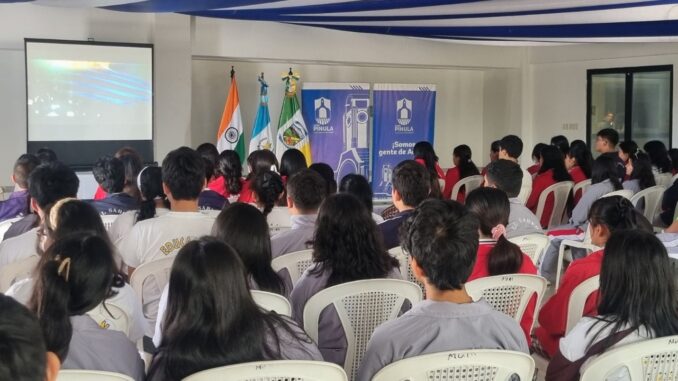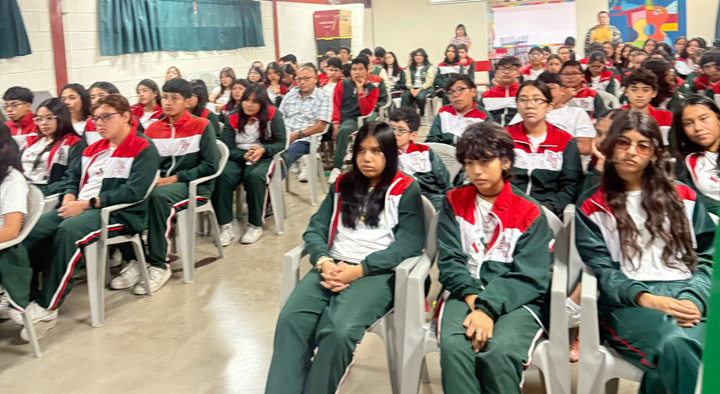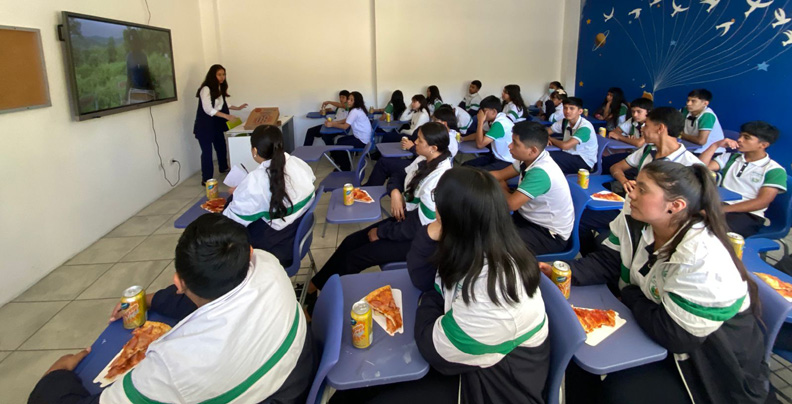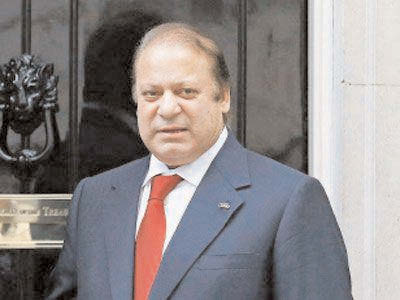
GUATEMALA CITY (TIP): The month-long Indian Film Festival organized by the Embassy of India in Guatemala between October and November 2024 had received an exceptional response, successfully bringing together communities from both urban and rural areas. The festival showcased India’s rich cultural heritage and demonstrated the universal appeal of Indian cinema. The enthusiastic and unprecedented reception from local Guatemalans inspired plans to screen more films in additional parts of the region. As a result, the festival was extended for another two months to reach even more remote areas.

The Indian Film Festival in Guatemala was not merely a cinematic showcase but a strategic cultural diplomacy initiative aimed at strengthening ties between India and Guatemala. By bringing Indian cinema to diverse regions, the festival introduced audiences to the rich tapestry of Indian storytelling while also creating opportunities for collaboration with the Indian film industry. The Embassy of India, in partnership with local producers, had involved local talent in dubbing Indian movies into Spanish. This initiative has already seen success, with hundreds of Indian films effectively dubbed, enhancing accessibility for local audiences.

The festival further enriched these collaborative efforts, as numerous local partners expressed a strong interest in aligning with the Indian film industry. They recognize immense opportunities in India, ranging from advanced post-production techniques to state-of-the-art special effects that could significantly boost the capabilities of Guatemala’s film sector. The screenings not only offered Guatemalans a glimpse into Indian culture but also opened new avenues for business opportunities within the Indian film industry, marking a significant step forward in cultural and economic engagement between the two nations.
The second phase of the Indian Film Festival commenced in February 2025, featuring the screening of eight Indian movies across various locations in Guatemala. Building on the enthusiastic response from the first phase, local municipalities embraced the initiative wholeheartedly, offering robust support and logistical assistance to ensure its success. The overwhelming success of the festival was particularly evident in Cobán, where the Embassy of India received an extraordinary turnout of 3,500 students. Due to logistical constraints, these students had to be divided into three groups, each attending separate screenings on 25 and 26 February 2025. The local administration in Cobán played a pivotal role in managing the large crowds and coordinating transport. Similar enthusiasm was witnessed in other regions, where municipalities struggled to accommodate eager audiences due to limited space. Several local administrations even requested additional screenings to meet the high demand. A remarkable example of this enthusiasm was seen in San José Pinula, where the screening was organized at the municipality on 4 March 2025 specifically for school children. The impact of the movie was so profound that the Mayor of San José Pinula formally requested the Embassy to organize five more screenings in the region under the municipality’s patronage. This response not only highlighted the wide-reaching appeal of Indian cinema but also underscored its potential as a tool for cultural exchange and community engagement.

The second phase of the festival also marked a significant shift in the audience demographic. In addition to the previously targeted municipalities, the festival also saw a growing interest from educational institutions. Students and faculty from Collegio Los Verdes in Fraijanes institution expressed an eagerness to engage with Indian cinema, signaling an academic interest in the cultural exchange facilitated by the festival. Liceo Técnico in Quezelpaque also joined the list of educational entities requesting to host Indian film screenings, highlighting the potential for educational outreach through cinema. Collegio Benito Juárez in Guatemala City is another prominent educational institution that reached out to host screenings, further demonstrating the growing popularity of Indian films among young audiences in Guatemala. This shift from municipal screenings to educational institutions underscores the increasing recognition of Indian films as an effective tool for cultural exchange and educational enrichment. Students and faculty are not only enjoying the films but also engaging in discussions about the narratives, themes, and cultural contexts presented in the films. The positive reception and continued requests for screenings indicate a strong desire to continue promoting the rich cultural diversity of India through its cinema. The festival’s outreach into educational institutions is an exciting step forward, reflecting the evolving nature of international cultural collaborations in Guatemala.

In conclusion, the month-long film festival organized by the Embassy of India in Guatemala has been a remarkable celebration of Indian cinema, culture, and creativity. The event successfully fostered greater understanding and appreciation of India’s rich cultural heritage, bringing together diverse audiences and strengthening the bond between India and Guatemala. The Embassy extends its heartfelt gratitude to all the organisers, municipalities, educational institutes, participants, and attendees who made this festival a resounding success. The Embassy remains committed to promoting cultural exchange and looks forward to more such initiatives in the future, continuing to bridge the gap between our nations through the universal language of film.





Be the first to comment